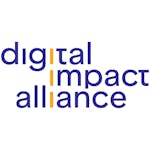Girls all over the world miss school while on their periods. Soumya is helping girls go to school by ending stigmas and distributing menstrual hygiene products.
Soumya was just 19 when she conceptualized Project Baala. Baala means “young girl” and the project is for girls, by girls. In college, Soumya volunteered extensively in Ghana, South Africa, and in Haryana, India, and found one common thread in all three locations: Girls were skipping school while on their periods. This meant that a girl could lose up to 60 days, or two whole months, of classroom time in a year — time that could be used to master a subject or learn a new skill or sport.
This was the turning point in Soumya’s life, and she knew she had to do something. She learned that 88% of girls and women in India did not use sanitary napkins and resorted to unhygienic ways of managing their periods including the use of ash, husks, and old rags that lead to reproductive tract infections or urinary tract infections in many cases. Of the 12% of women in India who do use commercial sanitary napkins, these napkins produced 9,000 tonnes of sanitary waste per year. To put it in perspective, that’s roughly the weight of the Washington Monument.
After months of research and hard work, Soumya developed the first pad prototype that was hand-stitched and made of recyclable materials. The prototype had to go through many iterations, but she finally developed one that was environmentally sustainable and culturally appropriate. The pad also aims to improve the menstrual health and hygiene practices of girls and women and make them period-positive.
Soumya conducts awareness sessions in schools and villages to smash taboos and stigma associated with menstruation. She says, “Open and free conversation around menstruation is the only way forward. Misinformation is being passed from one generation to the next, and it’s time to change that.” It’s been three years since Project Baala took off, and it has already expanded to 12 Indian states and reached 15,300 girls and women.
Lack of access to hygiene resources has far-reaching consequences, making inequality worse. By providing these resources, Soumya is helping change the lives of thousands of women. Addressing issues in health and hygiene is necessary to achieve a more equal world.
We are all safer and stronger when we #UniteforHealth. Support the UN Foundation’s work to deliver health for all.
Thank you to Girl Up for contributing this story.




 View All Blog Posts
View All Blog Posts

